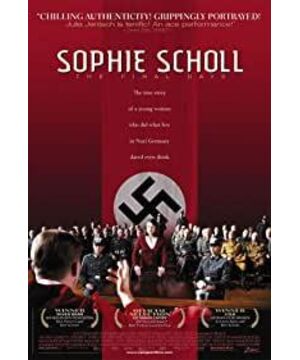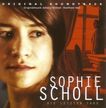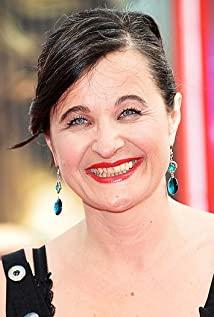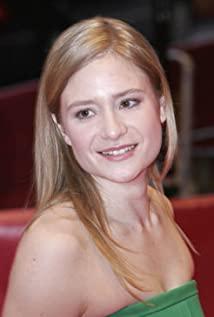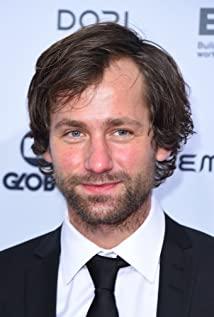- Commemorating the 60th Anniversary of the World Anti-Fascist War Victory in the World Anti-Fascist War
Sangke
Contemporary Germany once selected the ten great men, namely Adenauer, Martin Luther, Marx, Bach, Einstein, Goethe, Gutenberg , Sophie Scholl, Brandt, Bismarck. The youngest of them, Sophie Scholl, died at the age of 22, and she was the only woman among the ten. Why does she have such a reputation? Simple as it seems: she surreptitiously participated in the production and distribution of anti-Nazi "white rose" leaflets, and generously did so. When you think about it, it's not that simple. At that time, within Nazi Germany, personal speech was highly restricted, resulting in a murky pattern of "silent majority". How can I make the necessary voice as a vulnerable individual? Sophie and the rest of the White Rose group risk their lives to bravely practice a free philosophy of voice.
Sophie didn't start out with extraordinary courage. The 1982 German film "Die Weisse Rose" described her complex psychological changes. When Sophie arrived in Munich for the first time, she saw the words in her brother Hans Scholl's book "Resistance against Tyranny", and she said worriedly: "I'm very scared." This kind of fear is actually the psychology of most people facing power. In the face of the powerful and brutal Nazi dictatorship, the individual is indeed small and powerless, and it is impossible for each individual to see the whole of the individual in the lonely daily life. In the film, Hans makes an analysis of this: Many people just feel isolated and helpless, so they dare not take the flyer, let alone look at the flyer. Some students threw away the flyers as if they were electrocuted. This inner fear was real, and the psychological effect pursued by Nazi thought was to shape it. It not only caused superficial obedience, but more importantly, it forcibly deprived everyone of the right to think freely, and turned it into a war machine of the Nazi government, killing other people's lives and killing their own lives at the same time. After World War II, the German government and people carried out in-depth and multi-faceted reflections on the rampant Nazis and the silence of citizens during the war. In 1970, Prime Minister Brandt paid a state visit to Poland. When laying flowers at the Memorial to the Jewish Victims in Warsaw, he suddenly knelt down and pleaded guilty to the dead. This shocking kneeling fully demonstrated the vitality of German culture. Acknowledging guilt is not a simple factual confirmation, but is about whether the German tradition has lost its reflective mechanism. There is no doubt that the dual crime of war and dictatorship should be borne by Hitler himself, as well as by the Nazi Party and the Nazi government, but the individual who is the victim also bears the responsibility for the lack of supervision. Under the enormous pressure of the power, silence has actually easily evolved into a kind of connivance, even encouragement.
In February this year, the Berlin Film Festival released "Sophie Scholl: Hope and Resistance (Sophie Scholl-Die letzten Tage)", another translation is "Sophie Scholl: The Last Days". The film depicts Sophie's trial and beheading in just a few days after her arrest. "I hope to dissect this phenomenon when thousands of Germans, including my grandparents, turned a blind eye to Nazi atrocities," said director Mark Rothmund, born in 1968. His words go to the heart of the question, the question every citizen must answer: Why did I, as a person, choose to be silent when the atrocities happened? Sophie Scholl is not three heads and six arms, she is just an ordinary girl, and there is no essential difference from all living beings walking on the street. What made her choose to speak out? I thought that her starting point was simply unabated kindness, which led to her instinctive sympathy for the Jews and her instinctual dislike for war. It can even be said that it is not the political consciousness that leads the emotional Sophie to the road of resistance, but the conscience in her human nature. This conscience grows and grows, eventually growing into a kind of civic justice. Sophie's words to the judge in court should have good reason to be a motto for future generations: "Where I stand today is where you will stand in the future." Yes, what really has the right to judge can only be discernible history .
But silence can still be understood, like fear itself. In the 1982 film, philosophy professor Huber, like the silent majority, asks Hans Scholl a question of his own concern: In such difficult times, what can your "a piece of paper change? What's the point of doing it?" Hans, who had participated in the Hitler Youth League, answered very succinctly: "Wake up people." Huber is right. A piece of paper really can't change anything, not even the illusory heart. The normal progress of a social change may only come from legitimate parliamentary politics and other social forces that have the ability to promote it. However, a thin piece of paper still quietly dilutes the concentration of a single color in the overall pattern. This dilution is weak, even invisible to the naked eye. But after all, it happened, and it not only expressed the civilians' dissatisfaction with the Nazi government, their disgust with the aggressive war, but also constituted a warm embrace of other heretical speeches. Huber himself did the same. He began passively resisting at the Nazi authorities' professors' meetings, teaching the right to free thinking in the classroom, switching to providing paper for printing leaflets, and finally joining the ranks of White Rose altogether. He wrote angrily: "Don't hesitate any longer!" He realized that the practice of spreading ideas was more suitable for Germany. Awakening, yes, only awakening, like another movement that enlightens the minds of the people. The 1982 film's opening credits showed a white rose leaflet that read: "If a wave of riots sweeps the country like the air, and if everyone comes to participate, then the system will be shaken in a violent wave." This statement may be overly literary, but it expresses the passion that truth deserves.
There is no obstacle to understanding it this way: part of awakening also includes the right to know. Hans persuaded Sophie: "We should tell people what the hell happened. In Poland, 3 million Jews were killed, and our reports never reported that all the Jews our age were in concentration camps. .” Perhaps it was the force of brutal fact, not just the contagion of kinship, that transformed Sophie from a fearful majority to a brave anti-fascist fighter. She buys limited-edition stamps, envelopes, and steals paper for printing flyers from the teaching building. She goes to the arsenal for an internship during the summer vacation. Sophie smiles knowingly as she watches the Jewish female worker Yusher stuffing bread balls into a grenade... In 1982, the film was tense In the smooth transition of shots, we see the whole process of a person's awakening as a citizen.
Other arguments between Huber and Hans caught my attention. In the intensified ideological restraint of the Nazis, Hans dreamed: to oppose the Nazi government with violence. Huber believes this is not only dangerous, but also inappropriate. Because the distribution of leaflets is within the Weimar constitution, and violence is terror. Kristof, a member of the White Rose group, also opposed violence: "We should defeat the Nazis with our spirit." Violence against violence can only be exchanged for more dangerous violence. The speeches of leaders in Nazi uniforms at school assemblies were greeted with boos from the righteous students, which turned into what an admirer of Hans would later describe as "an uprising against the Nazis." The student policemen were facing each other. The policemen were armed with sticks and pistols, while the students were bare-handed. Courage is great, but what can physical anger change? Perhaps it will only bear the fruit of negative thoughts. Leave this aside. The admirer of Hans asked afterwards: "People don't know where the courage comes from?" This is completely answerable: it is because of the enlightenment and inspiration of the white rose leaflet.
In the early morning of February 18, 1943, the Scholl brothers and sisters came to the main building of the University of Munich, and took advantage of the opportunity of the students to put the flyers at the door of the classroom. Sophie threw flyers down on the second floor of the Hall of Light in the main building. Smit, the janitor, reported it quickly after seeing it, and the Gestapo immediately arrested it. Immediately, Christopher was arrested. More than 80 members of the White Rose group, including Alexander Schmorel, Willy Graf and Huber, were successively arrested.
Strictly speaking, the whistleblower janitor Smit is also the silent majority, but he is closer to the fainting patriot or bourgeois mediocre. He is keen on material life, abides by established ethics, and equates the government with the state, thus becoming an accomplice of the Nazis. This is a poor little man. In the 1982 film, the Gestapo honored Schmidt, who humbly said, "I just did what I was supposed to do." the basis of domination. This includes Sophie's boyfriend, Fritz, who even complacently enjoys the privilege of shooting people. They undoubtedly constitute resistance to social progress, and it is the daily work of enlighteners to educate them and awaken them.
Vulnerability in human nature is not a weakness of human nature, but only a characteristic. It is because of its existence that talent is human. In the 2005 film, Sophie rejected the Gestapo's "good intentions" and returned to the cell, clutching her stomach and crying heartbreakingly. Yes, anyone facing the loss of life feels visceral fear, and Sophie is no exception. But slightly different from others, once Sophie's reason awakened, she immediately understood the responsibility she had to take. "I'm afraid, but I don't give in", I think this is the normal reaction of any person with a conscience. Fear is not terrible, silence is not terrible, what is terrible is that you lose your conscience when you ask and answer yourself. This is the only thing that cannot be forgiven. Sophie's inner spiritual life gave her tenacious support. At the beginning of the film, Sophie and her girlfriend are listening to old songs on the radio, laughing and singing, making people almost forget the brutal war going on outside the window. Director Mark Rothmond said that this is his understanding of Sophie, a person who refuses the temptation to confess guilt and sacrifices her life for freedom, her spiritual world must be warm and fulfilling.
Four days after their arrest, the Scholls and Christophe met for the last time before their execution at 5 p.m. on the 22nd. They didn't say a word to each other, just smoking a cigarette in silence. Sophie was the first to step onto the savage and bloody guillotine. She calmed down her undulating heart, with a fearless face, magnanimous and calm. Hans, the last one, put his head in the knife holder, and suddenly shouted with all his might: "Long live liberty!" This impassioned voice recalled the deafening deafening of William Wallace's brutal execution in the movie "Braveheart" The cry of "FREE (Freedom)!" made me cry.
After the war, people did not forget the White Rose, let alone the six martyrs who died. In 1987, Miller, a member of the White Rose group, initiated the establishment of the "White Rose" Resistance Movement Foundation. Today, the White Rose Memorial Hall in the main building of the University of Munich is full of visitors every day. Speaking at the University of Bonn this year, Willy Graf's sister said: "It's not easy for me to tell about the white rose because it affects my own life. But I think I have to tell young people today. , let them know and understand: what happened? Why did it happen?”
The white rose is a household name in Germany, and it is not without bosom friends in China. In July 2002, the Foreign Language Teaching and Research Press published the German-Chinese version of White Rose (translated by Wang Ruizhi). The author is Hans and Sophie's sister Inge Scholl, who details the life and events of Hans and Sophie based on the remains of documents from that year. Taipei Zuoan Cultural Publishing House has previously published this book, and the translation is "White Rose 1943" (translated by Zhou Quan). The book cites court judgments, news media reports, and eyewitness recollections at the time, and the cover bears the remarks of former German President Richard Weizsek: "The courage of each generation redefines our civilization." Yes, all contemporary speech must have historical echoes.
2005.8.9.
View more about Sophie Scholl: The Final Days reviews


